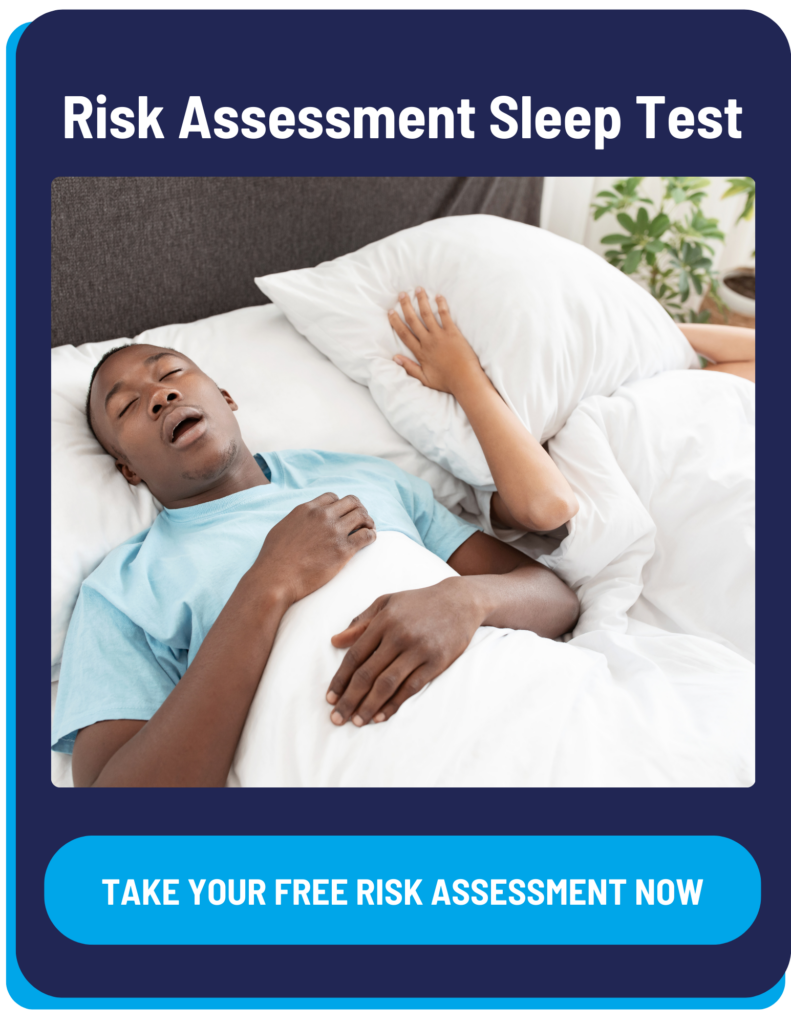Sometimes our sleep schedule goes off the rails. Whether it’s a long event-filled weekend or a study session in college, all-nighters can happen from time to time. While a good night’s sleep is important for overall health, an occasional night of lost night does not do any harm. However, when all-nighters become a common occurrence, then sleep health can be compromised. Understand how all-nighters can affect your sleep health and when you have had one too many.
What Are All-Nighters?
An all-nighter is an event that requires you to stay up all night. All-nighters can be celebrations or even watching a TV show you don’t want to stop watching. People can party until dawn during a holiday or long weekend and catch up on sleep the next day. All-nighters can also be serious events, such as when college students must finish assignments with tight deadlines or study all night to prepare for an important test. Eventually, we all have to sleep, so an all-nighter can just be a brief delay to our sleep schedule.
Are All-Nighters Bad for Your Health?
An occasional all-nighter will not harm you. But frequent and regular all-nighters can be harmful to your health. Deliberate sleep deprivation can impact your cognitive ability, which can affect memory, concentration, and alertness.
All-nighters can also affect your physical health. You may become more sensitive to pain as you lose sleep. Long-term sleep deprivation that is consciously driven can affect heart health, blood pressure, and blood sugar levels. Your brain and body need sleep and deliberately withholding sleep can be very harmful.
All-Nighters And Physical Well-Being
What happens to your physical well-being when you pull an all-nighter? Staying awake through the night takes a toll on physical health. Fatigue and low energy levels are more frequent when the body’s muscles and organs don’t have time to recover during sleep. In addition, a night without sleep raises pain sensitivity, which can lead to acute pain or exacerbate chronic pain.
Regular all-nighters can tax the body in other ways. Your heart must work harder to replenish diminished blood oxygen levels. This exertion can lead to chronic high blood pressure. Sleep deprivation begins to impact healthy organ function, affecting diabetes, sexual performance, and brain performance. Overall, your body is forced to work harder because it has not had the chance to recharge and refresh.
Sleep deprivation can also impair your ability to make sound judgments. Recklessness from sleep loss can result in serious accidents that can result in serious harm and even death.
All-Nighters and Cognitive Function
Going without sleep has an immediate impact on multiple types of thinking and brain function. Lack of sleep reduces attention span and concentration. It slows reaction time and impairs constructive thinking, which is part of emotional intelligence and how we understand and respond to those around us. Sleep deprivation diminishes mental place keeping, which is the ability to follow a series of instructions or tasks. It also restricts creative thinking and innovative problem-solving.
A night without sleep interferes with memory as well. It detracts from working memory, which is a temporary memory bank that we use for short-term needs. At the same time, research has found that people who go without sleep are at a higher risk of creating false memories, harming their longer-term recall of important information even after they’ve gone back to getting regular sleep.
Multiple studies have found that pulling an all-nighter causes impairment that is comparable to being drunk. Researchers found that after 24 hours of sleep deprivation, a person’s mental performance is equivalent to that of someone who has a blood alcohol content (BAC) of 0.10%, well over even the highest legal limit for driving in the United States (0.08%).
All-Nighters and Mood
Pulling an all-nighter doesn’t just interfere with effective thinking; it also contributes to various mood problems. Sleepless nights are tied to increased levels of the hormone cortisol, which is associated with stress. Relatedly, sleep deprivation is linked with anxiety which can impact both mood and behavior.
Numerous other elements of emotional mood are worsened after one night without sleep. Anger and irritability are more common, and people are more likely to feel depressed and fatigued after an all-nighter as well.
If you’re staying up all night to get ready for something big, chances are you need to be upbeat, peppy, and generally “on” in the morning. But if you haven’t slept, you’ll probably be anything but
That’s because sleepless nights tend to cause irritability, stress, and a short temper. One University of Pennsylvania study found that participants who logged 4.5 hours of sleep per night for a week reported feeling more stressed, angry, sad, and mentally exhausted than usual. But when they got back to their normal sleep schedule, their moods returned to normal, too.
Other Effects of All-Nighters
Crankiness isn’t the only possible side effect of pulling an all-nighter. Sleep deprivation can also cause short-term euphoria. Which, at first, might not seem like such an awful thing.
But in fact, those sorts of manic highs could result in poor judgment, suggests one recent University of California-Berkeley study. When you miss out on sleep, the parts of your brain that feel and respond to pleasure actually get a big boost (which might explain why sugary or fatty junk food seems especially delicious when you’re exhausted). But those same neural pathways are also the ones that are responsible for engaging in risky behavior.
Working on time management strategies is helpful in the long term. But, when you do find yourself with more work than hours in the day, the best thing to do is get your work wrapped up at a reasonable time and stick to your regular sleep pattern as closely as possible.
Why Do I Keep Pulling All-Nighters?
For most people, all-nighters are a way to achieve a time-sensitive goal. Often, working or studying all night also compels people to work harder toward their goals. But unfortunately, most all-nighters are rooted in poor time management. There is no reason to stay up all night for any objective when you can achieve the same goal during the day with proper scheduling.
Lost sleep while pulling an all-nighter just reduces productivity for the task you are working towards. You may be able to actually achieve the same results with a good night’s sleep in less time.
Can All-Nighters Be Good for You?
While some may feel that an all-nighter challenges the mind to drive better results, they would be wrong. The immediate effects on your mind and body demonstrate that it’s bad to pull an all-nighter. Staying up all night should never be thought of as positive or beneficial and should be avoided.
Even in circumstances when pulling an all-nighter seems like it could help, such as to give you extra time to study or work, it’s still typically a bad idea. Given the cognitive impacts of sleep deprivation, those extra hours are likely to be less helpful. They may even be counterproductive if they result in errors or false memories. Even worse, people who are sleep deprived are less aware of their cognitive shortcomings, increasing the chances of unwanted mistakes.
The risks of an all-nighter are especially worrisome for anyone who needs to drive, make important decisions, or operate heavy machinery during the day. These situations involve grave potential consequences from daytime sleepiness, microsleeps, impaired attention, decreased response time, and slowed thinking that can result from pulling an all-nighter.
All-Nighters and Signs of Sleep Apnea
An all-nighter can pose even greater problems if it is a precursor to unhealthy sleep patterns. Experts recommend having a consistent sleep schedule because it normalizes your sleep times and contributes to positive sleep hygiene. An all-nighter is an extreme break from your schedule and runs in contrast to this recommendation.
However, one all-nighter does not necessarily mean a person will have sleep problems afterward. But Existing sleep apnea can further exaggerate the problems of normal sleep.
How to Stop Pulling All-Nighters
Remain Hydrated
Staying hydrated helps you stay healthy and improve healthy sleep. You can reduce the need for an all-nighter by increasing your water intake. Do not hydrate with coffee, energy drinks, or other caffeinated beverages that might seem to help you stay awake. These types of drinks are diuretics and will only sap water from your system and leave you more dehydrated.
Regular hydration helps maintain the alertness you need to accomplish your goals during the day and avoid pulling an all-nighter.
Put the Lights on
Working into the night does not mean having to work all night. Create a productive workspace for either meeting next-day deadlines or test prep. A well-lighted desk area helps you stay alert and also helps you focus on the task at hand. Sometimes working in darker work areas can induce sleep, even before your normal sleep schedule.
Keeping the lights on while you work in the evening helps you finish your tasks sooner, so you do not have to stay up all night. When you finish your goals, you can turn the lights off and prepare for bed during your normal sleep routine.
Consider Eating Healthy Food
A healthy diet helps energize your body and mind. Often during all-nighters, people will crave junk food. Foods high in salt and fat can leave you feeling groggy. To stay alert and finish your tasks well before your bedtime, you should focus on a diet rich in fruits and vegetables, and whole grains. These foods nourish and energize the body rather than slow you down.
Also, practice healthy portion control. Working into the night can lead to overeating, which can also leave you feeling groggy.
Stay Active
Too much downtime can leave you feeling sleepy well before bedtime. Avoid procrastinating and stay active. Keep away from couch potato activities like watching TV or day napping or video games. Often people will indulge in these activities in anticipation of an all-nighter. These downtime behaviors drain rather than enhance energy levels and can leave you less motivated to start and finish your task, which can delay a deadline into late hours.
Consider Working with a Team
One of the best ways to work toward a goal is to recruit others for help. Collaborate on work projects with coworkers. They can help you stay motivated and inspired and assist you through work challenges rather than you facing them alone late at night.
Study groups are an ideal method for students prepping for a big exam. Fellow students can assist with overcoming study challenges and help you stay focused and organized through your study routine.
Utilize Eye-Opening Aromatherapy
Fragrance can stimulate the mind. Aromatherapy is a natural way to help you stay alert so you can meet these tight deadlines. Fragrances like rosemary are ideal for mental clarity, reducing fatigue, and improving brain performance. A mixture of lavender and frankincense can soothe the nerves and reduce stress relating to deadline-driven work. Peppermint is also helpful for staying alert. Improve your concentration with a whiff of peppermint oil and get your task done well before bedtime.
Consider Chewing Gum
Whether you’re not much of a coffee person or you’ve already had three cups and you’re still falling asleep at your desk, here’s an energy-boosting alternative: chew a stick of peppermint gum. Peppermint gum is particularly effective since studies show that the smell of peppermint can uplift mood and energy as well as bring a sense of mental clarity and focus. Studies found that physiological and self-rated measures of alertness could be improved by chewing gum.
Do Regular Exercise
You may think exercise would use the energy you need most to complete important tasks, but regular exercise can actually rejuvenate and energize the body and mind. People who exercise regularly experience less fatigue and are more alert during daytime tasks. A regular exercise routine can help you prepare for tough work or study schedules by keeping you restored and fit to manage your time better. Then you do not have to suffer through an all-nighter.
Keep Planning Ahead
Effective planning goes a long way when tackling a tough work task or a study demand. Use your time wisely. Set specific goals throughout your regimented time so that you stay on task and never veer away from wasted activities. Keep a time clock of your work schedule. This can help you stay on track to meet segments of your task rather than being overwhelmed by the whole project. You can finish faster by completing fragments of your task in less time.
Avoid Making All-Nighters A Habit
Some people may think that all-nighters are an acceptable and effective habit for managing deadline-driven work schedules or study schedules. But they are generally a waste of valuable time that leave you depleted and even more tired the next day.
Do not rely on all-nighters as a solution. Use your daytime hours and evening hours to complete your tasks and see your bedtime as an end goal and reward for completing work or study demands well ahead of schedule.
Recreate Healthy Sleep Schedule
Erratic sleep schedules are the worst for your health and undermine your ability to stay focused on work or school tasks. Maintain a consistent sleep schedule that ensures you are getting enough sleep every night. Go to bed at the same time to train your body when to sleep. When looming tasks require more of your time, work toward finishing them well ahead of your bedtime and never waste time or healthy sleep working into the night.
Stay Away from Long Afternoon Nap
You may think that prepping for an all-nighter can be solved with a long afternoon nap. But this disruption of your healthy sleep schedule just throws your mind and body out of whack. Instead, use that long afternoon nap time to get work done. Focus on your task and prepare to finish well before bedtime. You will never need to prepare for an all-nighter if you can complete your goals during the day. If you have time to nap, you have time to get things done.
Cross-Check Your Work Twice
With an all-nighter, you can get sloppy when it comes to results. Sleep loss can eventually lead to errors that you would not typically make, just because you are extra sleepy. Instead of struggling through an all-nighter and ending up with mistakes, focus on your work during the day and cross-check your work before bedtime to make sure everything is correct. That will give you the peace of mind to get a good night’s sleep.
Recall Your Motivation
As you work toward your goals, always remind yourself what your goals really are. It is easy to feel like you are working productively by pulling an all-nighter, but during that time you can find your mind detouring into other areas and you can easily become distracting, wasting time and healthy sleep. Write out your motivation for your all-nighter and finish before your bedtime, knowing you have accomplished your goals.
Do Not Put an Extension to Your Sleep Deprivation
Never prolong your sleep deprivation. The effects on your health and mind can be serious. If you must pull an all-nighter, then try to restore that lost sleep either the next day or the next night. Consistent periods of sleep deprivation can make you more reckless and far less productive than you think. You will make more mistakes and waste more time as sleep loss begins to break down your mind and body. Keep all-nighters to one night. Don’t allow sleep deprivation to become a lifestyle.
How Do I Know If I Have Sleep Apnea from Pulling All-Nighter Habits?
Sleep deprivation from sleep apnea has specific symptoms you can watch for. Sleep apnea symptoms include:
- Loud snoring at night
- Waking up gasping for air in the middle of the night
- Morning headaches
- Dry mouth in the morning
- Difficulty concentrating or poor memory issues the next day
- Daytime drowsiness even though you feel like you sleep all night
If you experience any of these symptoms regularly, you may need to see if you have sleep apnea. Your sleep deprivation may be more than the result of a few all-nighters. You may have a chronic sleep disorder. Get tested for sleep apnea today.





